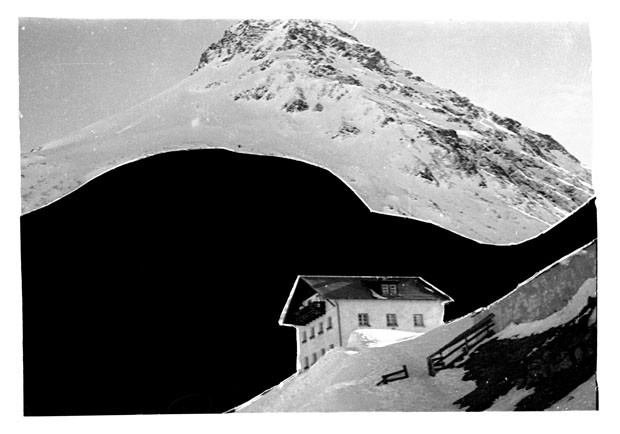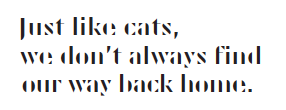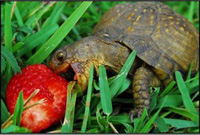
In: Sobras, Geraldo de Barros
Paris: Chose Commune, 2017
Vanessa Barbara
Translated from the Portuguese (Brazil) by Zoë Perry
I could begin by making a list of all the things I’ve lost: a green blouse with a lizard brooch during a train ride. A tube of mint flavored toothpaste after an intercontinental flight. A boyfriend, in 1982. A sock. An aspirin tablet. Contact lenses. My house keys – but they were inside a tote bag, something I only discovered after changing all the locks.
Thirty-odd years come and gone and I still can’t remember where I heard the phrase “I don’t want to die in Cordeirópolis”, which for some reason is scribbled in the margins of a French notebook. In my handwriting. Something else I’ve never been able to verify was a story someone told me about a couple who, as an experiment, hid the word ‘apple’ from their son until he was six years old.
I’ve lost my cat a few times too. Adoniran used to climb inside drawers, closets, empty boxes, and once he hid in the attic for an entire week. One night, however, he slipped out the open door and disappeared. I must have been around eleven. My parents assured me that cats know their way home and they always come back, but I waited several weeks and nothing. Some school friends – I don’t know if they were just making it up to comfort me – told me incredible stories about cats who’d returned home years after they disappeared, with battle scars and one eye missing, stories that had happened to their friend’s cousin’s neighbor, but Adoniran did not follow that pattern. Months passed. I gained a little brother, a chubby brown-haired baby who spent all day nursing. I also found a dried out contact lens under a kitchen chair, but no sign of Adoniran.
One day he came back. It was a late summer afternoon when my father opened the front door carrying a black cat with green eyes, an angry ball of fur that looked at us with the haughty contempt of someone who wasn’t put on this earth to be bossed around. He said he’d found it in the garden digging up daisies. My mother was right behind him, crack-ing her knuckles like she did when she was nervous. I was so happy I didn’t even notice he no longer had the tuft of white fur on his belly, or that his ears were not as pointy. Adoniran immediately took up residence in a corner of the living room and began sharpening his nails on my mother’s slippers, oblivious to my euphoria.
After that day, even if, deep down, I knew that cat wasn’t Adoniran – and my parents were counting on me not to notice the difference – I continued to call him by that name and was always spotting traits of his old personality lurking in this other animal: the way he sat in the fern planter, the meow of protestation he gave whenever something wasn’t to his liking, his obsession with staring into nothing. Cats know their way home and always come back, said my parents. I didn’t want to lose Adoniran.
Every cat who came after had the same name.
—
When my husband came home, I was standing in the middle of the living room with a spoon in my hand. Apparently I’d left the kitchen and was going to the bedroom, but along the way started thinking about armadillos and my whole reason for getting the spoon was seemingly sucked down the drain, vanishing in a matter of seconds and leaving in its place a blank spot, empty and frightening as a room with no furniture.
In the beginning it was like this: I’d be telling a story and all of a sudden lose my train of thought. I’d take the lead in a meeting to make some point I deemed important, then all of a sudden no longer remember why I was saying it or what I’d intended to say next. I started writing things down to keep them from slipping away, and soon began jotting down even the most trivial matters to prevent them getting lost by the wayside. For example, if I had to go to the laundry room to get a screwdriver, odds were good that, en route, I’d get distracted by a dirty dish left in the living room and change course to go wash it and, on my way to the kitchen, tap the edge of the table with my little finger and remember I needed to trim my nails, but in the middle of all this be startled by a car alarm in the street. And then I’d find myself in the bathroom holding a dirty dish, with no idea what I’d gone in there to do. So when a task arose that demanded more than three seconds to complete – or required a change of room – I would immediately grab pen and paper and write: “screwdriver”. I’d tuck the paper in my front shorts pocket, so that on any given morning the list might look like this: “wash face”, “don’t go out without wedding ring”, “empty bathroom trash”, “refill water filter”, “take umbrella”, “put on eyeliner”.
But that was just the beginning. On that day my husband simply took the spoon from my hand and started talking as if nothing out of the ordinary had happened, like you do with children when they threaten to burst into tears and you have to quickly distract them with a crayon or a head of cabbage. Apparently he didn’t want to make a big deal of it, or perhaps he had been through something similar. Maybe it wasn’t the first time he’d found me standing in the middle of the room holding a spoon.
These episodes of forgetfulness were becoming constant. It was like thinking of something – for example, the object we use to remove an egg from a frying pan, or the actor who played Spiderman – and simply being unable to name it. I could sense the information was there, somewhere in my mind, but didn’t know how to go about reaching it. I would open a door and find other things stored inside, like the name of that Portuguese aunt who wore flowery dresses (Cremilda) and my old phone number, or I’d keep thinking about electric mixers and can openers. I’d close my eyes, hold my breath and try to physically retrieve the word from within a tangle of other memories, but it was no use. The only way out was to give up and ask someone, at the risk of seeming very strange (“you know, that thing with the little holes? With a handle like this?”). Only then would I be able to retrieve that blessed slotted spoon.
Before long, everybody knew something was wrong with my memory. Still, at first, things would come back to me. I sensed that that bit of information existed; I knew it was ‘on the tip of my tongue’ and triggering one detail was enough to ignite the rest. Later on, this too would go. That feeling of unease at being in a room with no furniture ceased to be a presence and was transformed into an absence, and it was only through others that I noticed large gaps in my memory.
They were stuffed with something that looked like snow.
—
This erosion is inevitable and happens at a rapid pace. Since the last dash, I’ve already lost the slotted spoon again and was tickled to hear about this woman who makes lists to remind herself to refill the water filter.
Since I have no idea what I was planning to write next, I’ve decided that, before my understanding of words dries up completely, I will embark on putting into writing a single incident – one I hope will be the last to disappear, and about which I still have a few scattered memories. Enough to get me through until the last piece of me melts away.
They are the memories of the last winter with my brother.
—
I don’t remember now if it was in Switzerland or in France, only that it happened in the mid-seventies. For Christmas, I got a beautiful orange sweater, or maybe it was blue, and a pair of warm, cozy boots. My childhood dream was to see the snow. So off we went – me, my parents and my little brother – to a cottage we rented for the season, which probably means my family was very rich, or my father was a corrupt military officer, or that I was an international fashion model.
I still remember the feeling of watching snow fall for the first time. At first, it looked like dandruff from heaven, or a bunch of small white feathers someone had strewn from a building. It felt like we were on a different planet. I got butterflies in my stomach, like someone riding in a glass elevator: the more the snow fell, the faster it felt the elevator was rising. Snow covered the mountains, the trees, the roof of the cottage, the stairs, blanketing everything in white batting. When I close my eyes, I can still feel my feet stepping in it, the smell of clean air, the biting cold that pierced through my innermost layers of clothing.
That winter, soon to turn nineteen, I saw snow for the first time. I also tried to learn to ski – it was a disaster. My brother, always good at sports, picked it up almost immediately and could zip down the mountain by himself – skis bigger than him, goggles perched on his forehead, with the confident look of someone who’s only nine. “Just lean back like this”, and off he went, gliding smoothly along in front of me, while I just stood there, afraid to shift from my spot and fall again. I tried my best, taking a deep breath each time, but would always be overcome by panic and fall. After a few days, I finally gave up, content to sit by the lake reading a detective novel or watching my brother, who was now teaching the other children and even racing ahead of several adults.
I don’t remember if anyone else came on the trip with us; maybe some uncles and cousins, or neighbors, or my father’s co-workers. I do know that one of my most memorable (pardon the expression) experiences was a picnic by a tree that still had its leaves, where I drank a mug of frothy hot chocolate with people whose identity escapes me. (On second thought, maybe they were my parents.) The rest has been lost. I don’t remember, for example, whether that was before or after our trip to the cabin. Random things cling to my memory: a pile of burlap sacks, a sticky tap, or my brother with a frightened look on his face. I remember falling, hitting my head, and having to spend a few days in bed recovering. But I’m only sure of that because I still have the scar.
One weekend my parents decided to spend a few days away in the city and left me alone at the cottage in charge of my brother. We hadn’t spent time together in a while. I was already away at college and no longer had much contact with him, and suddenly I realized that I didn’t know him very well – or was that just a feeling I had now, fifty years later, as his image gradually fades from of my mind and I could no longer tell you if he was right- or left-handed.
I suggested we hike to an abandoned cabin that sat on the other side of the ski resort, up the mountain, through the trees. “We can build an igloo once we get there,” I said, wanting to convince my brother to ditch his skis for a day and spend the afternoon with me.
We jumped the barricade that marked the edge of the ski resort and hiked up the trail into the forest, walking slowly as I told a scary story – only I was lousy at it and he just giggled. I remember the wind picked up, it wouldn’t be long before the snow began to fall. I hesitated, but my brother begged for us to keep going. By my calculations, we were almost at the cabin. “We’re going to find a bunch of bodies up there for sure,” my brother said, as if trying to cheer me up. According to him, the place was used by evil spirits that attracted poor lost skiers. “The kids at the ski resort told me,” he explained, “they said nobody’s ever come back from there.”
(Left-handed, definitely left-handed.)
I don’t really remember if the snow on the trail was high or if we saw any squirrels along the way, but I can’t forget the little boy chattering away excitedly, almost breathless: “You’ll see, we’ll open the door and stacks of severed heads with bulging eyes will come rolling out, and a half-alive skeleton will grab you by the feet”. Dark clouds filled the sky and I picked up the pace because it looked like a storm might roll in. I took two of those woolen hats, whose name escapes me, from my backpack, as well as gloves and scarves. “No one can get out of there because when you slam the door it starts an avalanche, and the people get stuck in there and starve to death,” the boy said. I was amused and wondered what kind of school he’d been attending, or what kind of books his mother let him read.
In the distance, we saw a pile of stones and a shovel planted in the snow, which the boy then asked if we could take with us to bury the bodies. “No, we can’t bury anyone because we’ll need to eat their brains,” I replied in all seriousness, and he grew more excited. “There will be some little coffee spoons there, those teeny tiny ones, and we’ll take turns eating juicy brains,” I added. “And then,” he continued, “we’ll turn into zombies, and we’ll live in our igloo and hunt squirrels.” We left the slotted spoon standing in the snow and continued climbing.
At one point, he buried some marbles at the foot of a tree, saying they were presents for the next travelers who passed through, after the snow melted.
Basically that’s what I remember about that day: our conversation on the way to the cabin as clouds gathered overhead and the wind spread a snowy sheet over us, growing whiter by the minute. After we reached the top, we took a moment to admire the structure and began building our igloo. Inside the cabin, to our surprise – I don’t remember what was in there, and if I were to remember now that would certainly be a surprise. I feel like we’d taken some cucumber sandwiches. I took off my boots and left them at the door. Adoniran dropped his backpack and went to scout out the bedrooms. Maybe a storm came; maybe we had to spend a few days there, living off sandwiches. Or maybe that was from some movie I saw. I don’t know if the cabin was really abandoned, nor do I remember what happened after that. As hard as I try to shut my eyes and retrieve those memories, all I can see are bare walls, glassless windows, vague shapes buried under the snow.
And an orchid – yes, I remember an orchid. It would seem that inside that abandoned cabin in the ice, a few kilometers from the ski resort, was a vase with a single orchid that had somehow survived the winter. I stood watching that miracle, and was about to say something poetic when Adoniran came running in and plucked the orchid from its stem, saying he wanted to take it to give to his mother as a gift. He beamed from ear to ear. That’s all there is for me to tell. And it’s all that I have left.
I couldn’t say how we got back, or even if we ever did get back from there. That was my last winter with him – not that anything happened that day, or maybe something did happen, but because it is the last winter left in my memory. Bit by bit everything is fading away. I encounter people who may have already died, I forget whether I’m married, I scream at the nurses and don’t know why. The person I was in the past now no longer exists. The people I’ve loved are gone. All I have left are feelings in the present: a mouthful of chocolate cake, the sun burning my skin, a beautiful song that takes me back to absolutely nothing. I don’t even know anymore if I’ll die without ever seeing the snow.


